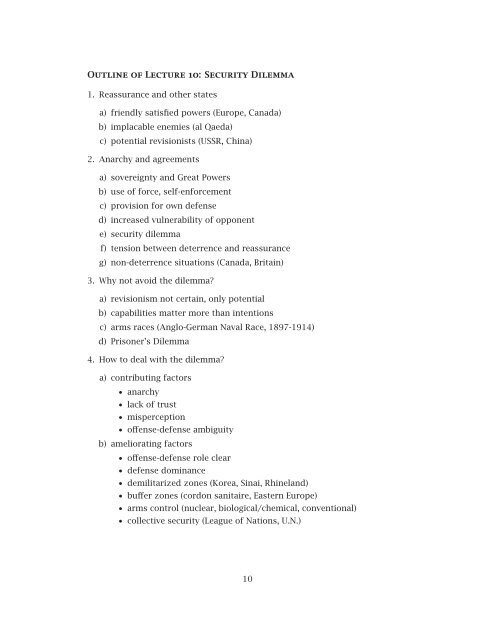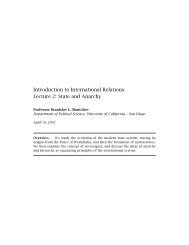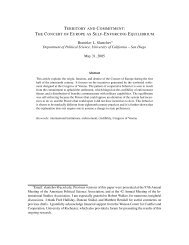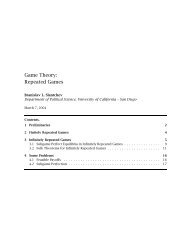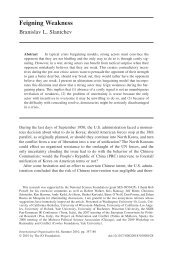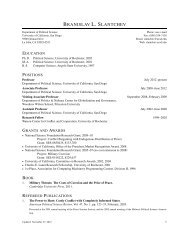Introduction to International Relations Lecture 10 - Branislav L ...
Introduction to International Relations Lecture 10 - Branislav L ...
Introduction to International Relations Lecture 10 - Branislav L ...
You also want an ePaper? Increase the reach of your titles
YUMPU automatically turns print PDFs into web optimized ePapers that Google loves.
Outline of <strong>Lecture</strong> <strong>10</strong>: Security Dilemma<br />
1. Reassurance and other states<br />
a) friendly satisfied powers (Europe, Canada)<br />
b) implacable enemies (al Qaeda)<br />
c) potential revisionists (USSR, China)<br />
2. Anarchy and agreements<br />
a) sovereignty and Great Powers<br />
b) use of force, self-enforcement<br />
c) provision for own defense<br />
d) increased vulnerability of opponent<br />
e) security dilemma<br />
f) tension between deterrence and reassurance<br />
g) non-deterrence situations (Canada, Britain)<br />
3. Why not avoid the dilemma?<br />
a) revisionism not certain, only potential<br />
b) capabilities matter more than intentions<br />
c) arms races (Anglo-German Naval Race, 1897-1914)<br />
d) Prisoner’s Dilemma<br />
4. How <strong>to</strong> deal with the dilemma?<br />
a) contributing fac<strong>to</strong>rs<br />
anarchy<br />
lack of trust<br />
misperception<br />
offense-defense ambiguity<br />
b) ameliorating fac<strong>to</strong>rs<br />
offense-defense role clear<br />
defense dominance<br />
demilitarized zones (Korea, Sinai, Rhineland)<br />
buffer zones (cordon sanitaire, Eastern Europe)<br />
arms control (nuclear, biological/chemical, conventional)<br />
collective security (League of Nations, U.N.)<br />
<strong>10</strong>


